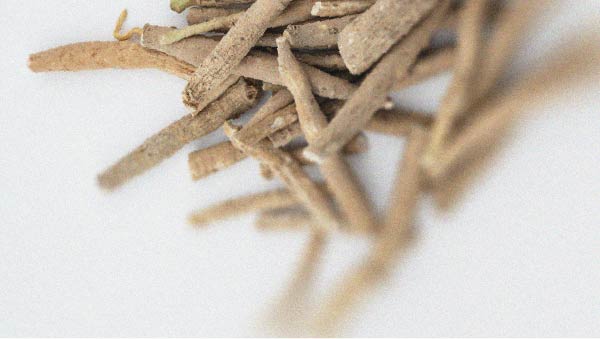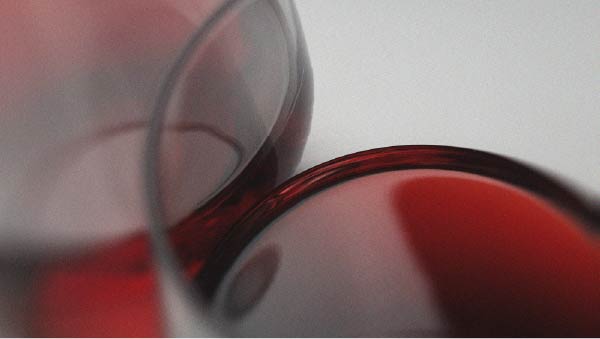Krill oil: definition and benefits of this excellent source of omega-3
The oil obtained from this small shrimp-like crustacean has swept the globe since the development of a particular oil extraction technique in the 2000s. Let’s take a close look at krill and its benefits.

Krill, from animal diet to human diet
Krill is a Norwegian term meaning whale food. Indeed, this small shrimp-like crustacean forms the bulk of the diet of many marine mammals with baleen (a filter-feeding system inside the mouth), such as beluga and minke whales. It is part of the diet of squid, penguins, numerous fish and marine birds and makes up 98% of that of crabeater seals.
The best-known species of krill is Euphausia Superba, also known as Antarctic krill, as it is primarily in these southern polar regions that it lives and reproduces. It feeds there on phytoplankton and releases secretions which in turn provide nutrients back to the phytoplankton (1).
With an estimated total biomass of between 125 and 175 million tons, krill is thus an essential link in the marine food chain.
It has also been consumed in dried form for centuries by human populations in Northern Europe, Russia and Japan, where it features in many recipes (particularly soups).
However, it was only with the discovery in 2000 of an oil-extraction process which did not destroy the beneficial compounds of this amazing crustacean, that krill really began to be consumed by humans on a larger scale (2).
Krill oil is an excellent source of omega-3 and astaxanthin
Why look to produce krill oil when fish oil is easier to obtain, has been widely used for centuries and is full of beneficial properties? Quite simply because, in addition to containing two specific types of omega-3 essential fatty acids (DHA and EPA), krill oil also contains phospholipids and astaxanthin(3).
So:
- EPA and DHA support normal heart function and help maintain normal blood pressure(4) ;
- DHA helps maintain normal brain function, vision and blood triglyceride levels (5);
- phospholipidspromote the uptake and effects of DHA and EPA (6) ;
- and astaxanthin is considered by naturopaths to be a potent antioxidant (7).
So consuming krill oil provides both the benefits of fish oil, as well as an additional intake of astaxanthin. To obtain the benefits of a high-quality krill oil, free from pollutant residues, you could, for example, try the product Krill Oil (8).
Omega-3/omega-6 ratio: a delicate balance
Omega-3 and omega-6 are two groups of fatty acids termed essential, which we have to obtain from our diet. In fact, not only is the body unable to produce them, but it has to use them to synthesise other essential fatty acids(9).
Modern Western diets tend to be very high in omega-6, which is found in particular in pork and poultry reared on corn or soya, the two main types of feed for such farm animals. As a result, Western populations generally have a sufficient intake of omega-6, and as a rule, there is absolutely no need to increase your intake of omega-6.
Similarly, the growth in consumption of processed food since the 1950s means that many people in the West have a diet that’s too high in trans fatty acids which have an adverse effect on health.
In contrast, Western diets tend to be too low in omega-3. For example, the body might produce essential fatty acids from the DHA and EPA provided by dietary omega-3, but it does so in insufficient quantities.
Deficit of omega-3: modify your diet, benefit of krill oil ...
In 2008, based on a review of all the studies conducted on the different fatty acids, a French researcher concluded that it was necessary to increase intake of alpha-linolenic acid (an omega-3 precursor), as well as that of oily fish which contain omega-3 (10-11).
In order to obtain a good balance between omega-3 and omega-6, you therefore need to eat a balanced diet, with plenty of oily fish, either maintaining or reducing your consumption of meat, and avoiding processed foods.
By directly supplying the body with DHA and EPA, krill oil also helps to meet the urgent need for a higher intake of omega-3.
References
- QUETIN, LANGDON B., ROSS, ROBIN M., Behavioral and Physiological Characteristics of the Antarctic Krill, Euphausia superba, American Zoologist, 2015, https://doi.org/10.1093/icb/31.1.49
- Beaudoin A, Martin G. Procédé d'extraction de l'huile de krill ou de calanus ou de crustacés. Université de Sherbrooke. Canada, 2000
- Tou, Janet C., Jaczynski, Jacek, Chen, Yi-Chen, Krill for Human Consumption: Nutritional Value and Potential Health Benefits, Nutrition Reviews, 2007, DO 10.1111/j.1753-4887.2007.tb00283.x
- EU Register of nutrition and health claims made on foods (v.3.5)
- Jean-Marie BOURRE, Relations entre acides gras oméga‐3, oméga‐9, structures et fonctions du cerveau. Le point sur les dernières données. Le coût financier alimentaire des oméga‐3, Oléagineux, Corps Gras, Lipides. Volume 10, Numéro 3, 165-74, Mai 2003, Colza : enjeux et nouvelles synergies de la recherche, NUTRITION
- Ramprasath VR, Eyal I, Zchut S, Shafat I, Jones PJ. Supplementation of krill oil with high phospholipid content increases sum of EPA and DHA in erythrocytes compared with low phospholipid krill oil. Lipids Health Dis. 2015 Nov 4;14:142. doi: 10.1186/s12944-015-0142-y. PMID: 26537218; PMCID: PMC4632328.
- Naguib YM. Antioxidant activities of astaxanthin and related carotenoids. J Agric Food Chem. 2000 Apr;48(4):1150-4. doi: 10.1021/jf991106k. PMID: 10775364.
- Ulven, S.M., Kirkhus, B., Lamglait, A. et al. Metabolic Effects of Krill Oil are Essentially Similar to Those of Fish Oil but at Lower Dose of EPA and DHA, in Healthy Volunteers. Lipids 46, 37–46 (2011). https://doi.org/10.1007/s11745-010-3490-4
- https://www.anses.fr/fr/content/les-lipides
- Dr Jean-Michel Lecerf, Acides gras et maladies cardiovasculaires De l’épidémiologie à la pratique clinique, Chole-Doc, numéro 110, novembre - décembre 2008, Centre de recherche et d'information nutritionnelle
- https://www.anses.fr/fr/content/les-lipides
Keywords
5 Hours
First bottle has been finished
First bottle has been finished. 2 bottles remaining for 3 month time frame trial as recommended
CORCORAN Pamela
5 Days
repeat customer
recommended by my doctor. easy to create an account. Discounts and specials are appreciated. packaging and delivery is dependable. Capsules easy to digest. I've had some some capsules and tablets that are broken inside their bottles.
Kokee
9 Days
Order was shipped on time and packaged…Wonderful Jobs!
Order was shipped on time and packaged excellently.
DMHoge
15 Days
great products and prices
great products and prices
Marie
21 Days
Easy to navigate site
Easy to navigate site, had what I was searching for, good price. easy order-check out
James Tucker
27 Days
My skin is clearing up nicely!
Pretty good for my skin so far.
Christian
30 Days
The new packaging is excellent
The new packaging is excellent - finally! No more squashed boxes and torn envelopes.
GORAN
30 Days
Great Product
Great Product
Larry Garrett
35 Days
Quick shipping
Quick shipping; good price. No issues!
Mary McCarty
36 Days
Thr product is very good and is helping…
Thr product is very good and is helping me on my health. Then is always on time
LUGO Luz
39 Days
Buying was fine
Buying was fine. I had problems with the website not recognizing my login info, and had to call to get it fixed. Other than that, everything was good.
David S. Clark
39 Days
Your super maca and super ginseng are…phenomenal
Your super maca and super ginseng are phenomenal supplements that compliment each other when taking them together. Fantastic feeling of well-being and lots of mid day energy without the crash.
Keith Mason
42 Days
I have had amazing results with every…
I have had amazing results with every supplement I've purchased. I am extremely satisfied with this company
kirstin Torres
42 Days
Fine products
Fine products . They are on the leading edge of online supplements. The only issue -so far-is they sometime run out of subscription items.
Jason Argos
45 Days
The ordering process is very user…
The ordering process is very user friendly and the products always come in a timely manner.
CARTER Rhonda




